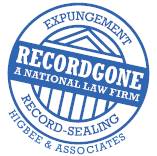Governor Brown signed into law AB 2845, which will improve the process and benefits of the California Pardon and Certificate of Rehabilitation. The new law, known as the Pardon and Commutation Reform Act of 2018, will go into effect on January 1, 2019. It will make important improvements on the procedures and processing of pardons and certificates of rehabilitation. The reform, however, does not make significant changes to the eligibility of receiving a pardon or certificate of rehabilitation. The Pardon and Commutation Reform Act of 2018 is an important law that will benefit rehabilitated people who wish to rejoin their communities and move forward in their lives.
On and after January 1, 2019, it will be an unlawful practice for an employer to consider convictions for which an individual has received a pardon or certificate of rehabilitation when conducting a background check. Prior to this amendment, those with sealed and dismissed cases enjoyed those protections, but those who received a pardon or certificate of rehabilitation did not enjoy such a benefit when seeking employment or applying for housing. This change will improve the success of rehabilitated offenders in finding gainful employment to provide for their families and themselves.
A few significant procedural changes should improve the process of seeking a pardon. The current practice leaves applicants wondering where they are at in the process and becoming frustrated at their state of limbo. The law requires the Board of Parole Hearings to submit a written or electronic notification to applicants that they have received the application, and to notify applicants when they issue their recommendation to the governor. These are important steps at helping applicants know they were not just lost in the bureaucratic shuffle. The second procedural change impacts those who receive a certificate of rehabilitation. Already, if an applicant earns a certificate rehabilitation from the superior court, a pardon application is automatically generated. The law change takes this process a step further and requires, pending criteria established by the governor, that the Board of Parole Hearings review the pardon application within one year of the court issuing the certificate of rehabilitation.
Additionally, the law would enable the governor to move quickly in deciding a pardon application that is supported by a certificate of rehabilitation by allowing the governor to make a decision on that application without an investigation and recommendation by the Board of Parole Hearings. Finally, the law would open up the number of venues that someone may seek a certificate of rehabilitation in to include a superior court where they were convicted of a felony or where the applicant received 1203.4 relief in. Prior to this law, you had to file a certificate of rehabilitation request in the court of jurisdiction for your residence. Finally, those with an urgent need may request their pardon or commutation consideration be expedited by the Board of Parole Hearings. The law specifically cites someone facing pending deportation proceedings, however the urgency need is not restricted to just deportation risk.
The significant eligibility change with this law comes in the context of immigration. The law makes it clear that an individual is eligible for a pardon, commutation, or certificate of rehabilitation regardless of their immigration status. There have been instances where a superior court has denied a request for a certificate of rehabilitation because of an applicant’s immigration status, but with this change, the reviewing body will be required to focus more on the rehabilitation of the individual and risk for reoffending, rather than immigration status.
It is important to note that with these changes, however, the new law does not compel the governor to make a decision on pardons, either direct or via a certificate of rehabilitation, in a specific time frame, however the law change does provide needed clarity to the procedure. Additionally, the law further enhances the benefits enjoyed by those who are able to earn a pardon or certificate of rehabilitation.
Overall this law is in step with California’s continued movement towards improved rehabilitation opportunities and processes for deserving former offenders. Governor Brown’s has led by example in this area of public policy through the use of his pardon and commutation power. During his two most recent terms, he has pardoned more people than any other California governor in the modern era. Governor Brown has granted a total of 1,189 pardons and 152 commutations according to reporting by the SF Chronicle. By comparison, Gov. Brown’s predecessor granted only 15 pardons and 10 commutations. While we do not know for certain how Governor Newsom will address pardon and commutation applications, it stands to reason that the new governor will not deviate substantially from the precedent set by Gov. Brown. If you or a loved one are seeking the relief of a pardon or certificate of rehabilitation, please contact us at 877-573-7273 or via our website to discuss your options today. We have helped thousands of clients and we would love to help you too.




One Response to Governor Brown Signs California Law Improving Pardon and Certificate of Rehabilitation Procedures